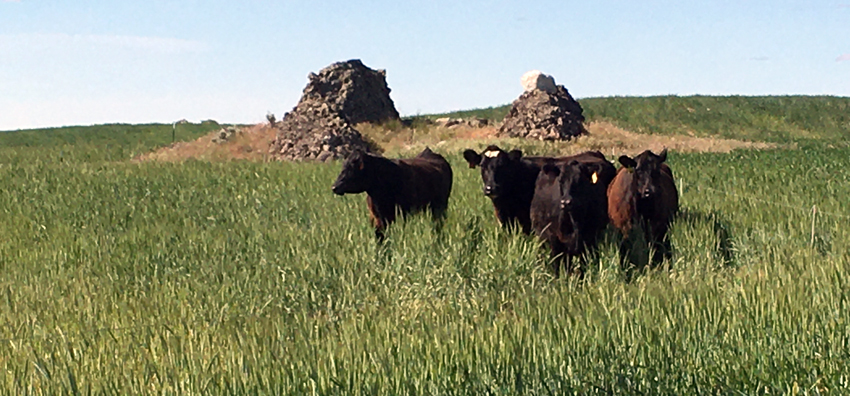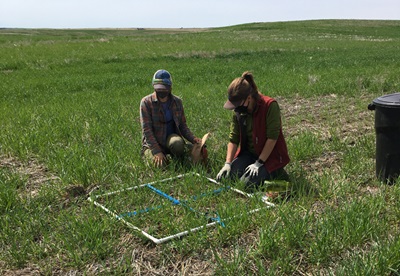Current projects
Soil health study

Eastern Washington farmers, Boulder Park Project, the King County Biosolids Program, and Washington State University (WSU) are studying the use of biosolids to improve soil health and crop yield in no-till, dryland farming systems.
The study
WSU researchers are evaluating whether biosolids and cover crops benefit soil microbial activity, nutrient cycling, soil tilth, and soil water retention. Cattle grazing is included in this study to determine if cover crop grazing can help manage crop residues, reduce moisture depletion, and promote overall economic return.
Improving farming through research

It's important farmers have the data and science they need to maintain sustainable and profitable farms. To grow healthy plants for improved crop yields, they need to learn more about the complex interactions between animals (cows), nutrients, carbon, and water that influence soil quality.

 Translate
Translate